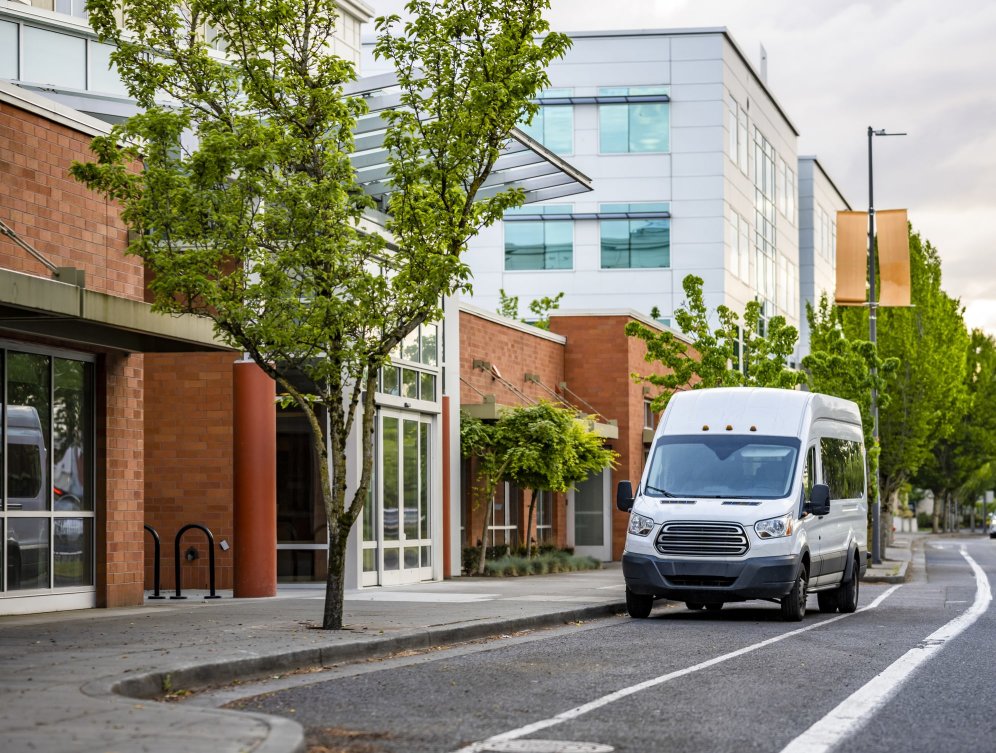
Don’t wait until you or one of your employees gets into an accident while driving for your business to ask, “What is commercial auto insurance?”
As a business owner, you know you need to cover certain risks by taking out a general liability policy and worker’s compensation insurance. But have you considered all the ways you and your employees drive their personal or company vehicles for work?
Most people understand that if your company owns cars, trucks, vans, trailers, and other motor vehicles, you need insurance coverage. If your company has employees who drive their own vehicles as part of their job duties, such as an outside salesperson, you have additional “hired and non-owned” auto liability exposure as well. Personal auto insurance might provide coverage, but most employees will carry minimal policy limits, which can lead to the claim being paid by your commercial auto insurer.
Commercial auto insurance is designed to cover you and your vehicles if you’re involved in an accident while on the job. Without it, lawsuits, medical and property damage claims, or repairs and replacement costs could sink your business.
A Closer Look at Commercial Auto Insurance
Commercial auto insurance is for the vehicles you use for business purposes. It’s a contract between your business and its insurer that lays out how the insurance company will pay for losses resulting from vehicular accidents.
Most states have some minimum requirements for commercial auto insurance. Even so, it’s important to tailor your insurance coverage to your specific operational model. After all, what is commercial auto insurance, if not a business-centric version of standard transport protection?
You must carry commercial auto insurance if you own, lease, or hire any vehicles for business use. For example, if you own a vehicle that you regularly use to transport tools, equipment, and supplies for your business, you need commercial auto insurance.
There are three basic types of coverage available in most commercial auto insurance policies:
Physical Damage: Collision and comprehensive coverage
Liability: Bodily injury, property damage, uninsured and underinsured motorist coverage
Miscellaneous Coverage: Medical bills, towing, rental reimbursement, and more
The type of coverage you need is dictated by how you use your vehicles, whether you own, lease, or rent them, and who drives them.
The coverage may look similar to your personal auto insurance plan, but commercial auto insurance often provides higher liability limits. Insurers typically specify a minimum and maximum level of coverage per vehicle.
What Does Commercial Auto Insurance Cover?
Whether you have Hired & Non-Owned exposure or a fleet of trucks on the road, you need to be covered in case of an accident. Here are the basic coverages you should have in your commercial auto insurance policy.
Collision Insurance
Your insurer will pay for repairs or replacement if you or an employee hit another vehicle, another vehicle hits one of your company vehicles, or your vehicle rolls over.
Comprehensive Insurance
Comprehensive insurance will pay for damage to your cars, trucks, vans, and other motor vehicles (aside from accidents). Your vehicles will be covered against damage from theft, vandalism, fire, flood, animals, and more.
Liability Insurance
You or an employee could be at fault for a crash that causes bodily injury or property damage. In this scenario, liability insurance can pay for the other party’s medical expenses or lost earnings. It also can pay your legal costs if you get sued.
Uninsured Motorist Insurance
Uninsured motorist insurance can cover you if you’re hit by a driver who doesn’t have insurance. It can pay your medical bills and the cost of repairs for damaged property.
Underinsured Motorist Insurance
You may live in a state with no-fault car insurance, where the insurer for each driver in an accident pays for the driver on the policy. If you don’t, you could get in an accident with someone who doesn’t carry enough liability insurance to cover your medical and repair expenses. Uninsured motorist insurance can handle those expenses.
You can schedule each company vehicle separately or list vehicles and their corresponding coverages based on age, size, and safety or theft rating. For example, an older truck in your fleet wouldn’t need the same collision or comprehensive coverage as a new truck. This gives you the coverage you need without overpaying.
Commercial Auto Insurance Options and Add-Ons
Commercial auto insurance policies can be tailored to your business based on your industry, the type of vehicles your company owns, how they’re used, how far and how often they’re driven, and other factors.
Several options and add-ons can allow you to customize your coverage even further to make driving less of a risk for your business. They include:
Roadside assistance
Rental car reimbursement
New vehicle replacement
Gap insurance
Hired and non-owned vehicle protection
Towing
These optional protections might not be necessary, but having them can help keep your company from having to pay out (or just help your employees get to meetings on time).
How Much Does Commercial Auto Insurance Cost?
What you’ll pay for commercial auto insurance varies by industry. Vehicles are rated on class of business and gross vehicle weight. Rates are typically based per auto or can be mileage-rated.
Business owners can expect to pay between $1,000 to $5,000 per unit in annual premiums for standard non-heavy autos.
How to Find Commercial Auto Insurance for Your Company
When it comes to selecting the right commercial auto insurance plan, half the battle is knowing the answer to the question of what commercial auto insurance is. Now that you know, here’s how you find the insurance you need for your business.
To start comparing options, talk to a licensed commercial insurance consultant. You’ll need to answer a few questions and provide certain information to ensure you get the right coverage for your car or fleet. This information may include:
Your company’s name, location, and industry
Your and other drivers’ names, dates of birth, and driver's license information
The make, model, location, age, and intended use of the covered vehicles
An estimated driving radius and average length of trips or mileage
You and other drivers’ personal auto insurance details
The limit and deductible of coverage desired
The value of the vehicles
Previous loss history data
State regulations can impact the coverage you purchase, so it’s important to understand the specific rules and regulations in the areas where you operate.
Get the Commercial Auto Insurance You Need
It requires some work, but getting the right commercial auto insurance to lower your risks is as important as any other insurance you buy for your business. Gather the information you need and speak with a knowledgeable property and casualty consultant before you and your employees hit the road. You’ll be glad you did.







